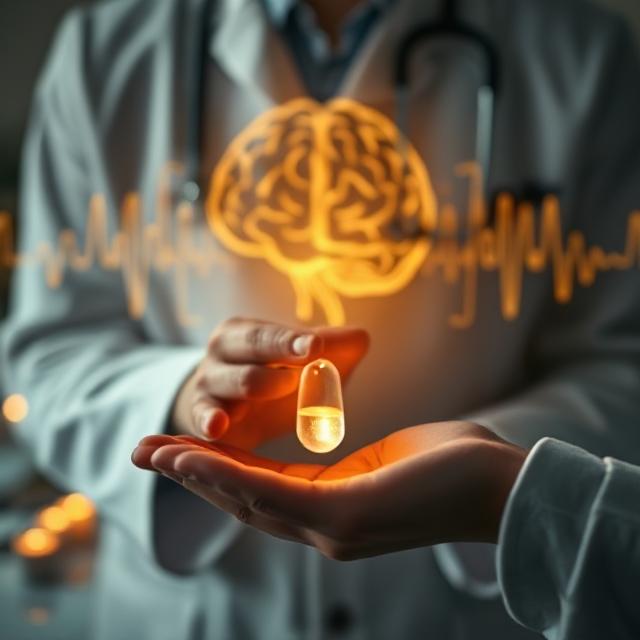Your cart is currently empty!
The Placebo Effect and Belief in Healing

Table of Contents
The Placebo Effect and Belief in Healing
The placebo effect and belief in healing reveal a profound truth: our minds play a powerful role in shaping our bodies. While conventional medicine often separates mind and matter, the placebo phenomenon proves they are deeply intertwined. When a sugar pill relieves pain, or a fake surgery improves mobility, we are forced to ask—what exactly is healing, and how much of it happens in the mind?
This article dives deep into the science, psychology, and philosophical implications of the placebo effect. From clinical trials to spiritual healing, we’ll examine how belief—genuine or constructed—can trigger real physical change.
I. What Is the Placebo Effect?
The placebo effect occurs when a person experiences real improvement in symptoms after receiving a treatment that has no therapeutic effect. This could be:
- A sugar pill
- A saline injection
- A sham surgery
- Or even verbal reassurance
Yet the patient’s condition measurably improves—pain fades, symptoms lessen, even biological markers change. It isn’t magic; it’s biology filtered through belief.
Placebos are not just ‘fake medicine’; they are a lens into how the brain modulates perception, physiology, and healing through expectation.
II. The Neuroscience Behind the Placebo Effect
Modern imaging techniques like fMRI and PET scans show that the placebo effect is not imaginary. Key findings include:
A. Endorphin Release
Belief in treatment activates the brain’s opioid system. Endorphins reduce pain in the same way morphine does—but from within.
B. Dopamine Response
In Parkinson’s disease, patients who believe they are receiving effective treatment show increased dopamine in the brain—a neurotransmitter crucial to movement.
C. Brain Activity
Brain regions involved in attention, expectation, and reward (like the prefrontal cortex and anterior cingulate cortex) light up during placebo responses.
III. Belief and Meaning: More Than Biology
The belief in healing amplifies the placebo effect. Cultural symbols (white lab coats, pills, rituals) carry subconscious authority. Patients are more likely to improve if they trust the caregiver and believe the treatment is effective.
A. Rituals as Healing Acts
Even in shamanic or spiritual traditions, healing often involves ritual, storytelling, and symbolism. These can induce powerful placebo responses—altering mood, immune function, and subjective experience.
B. Trust and Context
The therapeutic setting—doctor-patient rapport, environment, and reassurance—greatly affects outcomes. Healing is social as much as biological.
IV. The Ethics of Placebos in Medicine
While placebos are scientifically fascinating, their use raises ethical questions:
A. Is It Ever Ethical to Deceive?
Doctors can’t lie to patients without violating informed consent. Yet, open-label placebos—where patients are told they’re getting a placebo—still often work. This suggests belief itself, not deception, is key.
B. Alternative Medicine and the Placebo Debate
Some critics argue that the efficacy of many alternative therapies (like homeopathy or reiki) is mostly placebo-driven. But if people feel better, does it matter why? The placebo effect forces us to question the line between ‘real’ and ‘perceived’ healing.
V. Implications for Healing and Self-Regulation
The placebo effect isn’t just about sugar pills. It teaches us:
- The brain is a powerful pharmacist.
- Belief can regulate physiology.
- The mind-body connection is real and underutilized.
A. Harnessing the Placebo Without Deception
Can we build healthcare models that enhance positive expectation, ritual, and trust—without abandoning science?
B. Self-Healing as Empowerment
If belief can modulate pain, mood, and immunity, we may be able to train the brain through techniques like:
- Meditation
- Visualization
- Positive suggestion
These don’t replace medical care—but they enhance it.
VI. Conclusion: Beyond Illusion, Toward Integration
The placebo effect and belief in healing challenge us to rethink the boundaries of medicine. They remind us that healing is not purely mechanical. It’s also emotional, cognitive, and spiritual.
Rather than dismiss the placebo as illusion, we might embrace it as evidence of our untapped human potential. In every pill, prayer, or comforting word lies a seed of self-healing—waiting for belief to bring it to life.
